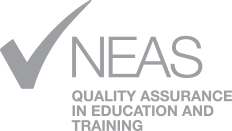The 2021 NEAS Management Conference was held 6-7 May,
livestreamed from Doltone House in Sydney.
All conference content is now available for viewing.
If you attended the conference, you can access the recordings from the NEAS Management Conference Online Platform (check your email for your unique access link).
The recordings are also available for viewing via the NEAS Online Portal.
Planning for the 2022 event is underway and details will be announced shortly.
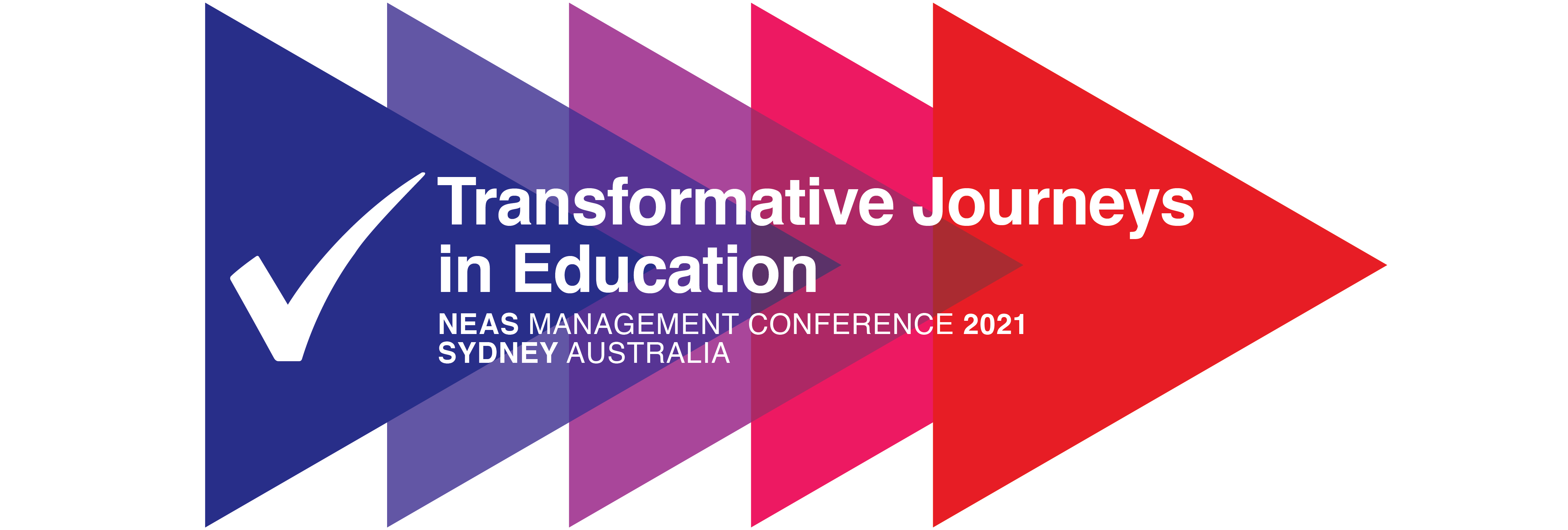
Keynote Speakers
A long way home
Saroo Brierley
Saroo Brierley was born in a small Indian town. In 1986, aged only 5, he lost all contact with his family when he was separated from his brother at a train station. He never saw his brother again.
After living on the streets of Calcutta for 3 weeks by himself, Saroo was placed in a local orphanage before being adopted by an Australian family. He grew up with his new parents in Hobart, Tasmania for the next 25 years. But he was unable, and unwilling, to forget the land of his childhood.
Determined to rediscover his past, he embarked on a virtual odyssey of his homeland and, after many hours pouring over Google Earth, armed with only the images etched into his memories as a 5 year old, he managed to recognise his home town, and track down his mother.
Their reunion in 2012 made headlines across the world, and his full story is recounted in his #1 international bestselling autobiography, A Long Way Home.
The film Lion, based on his autobiography was released in November 2016 and nominated for four Golden Globe and six Academy Awards. The film stars Nicole Kidman and Dev Patel.
Saroo’s is a remarkable and touching story of survival and sheer determination.
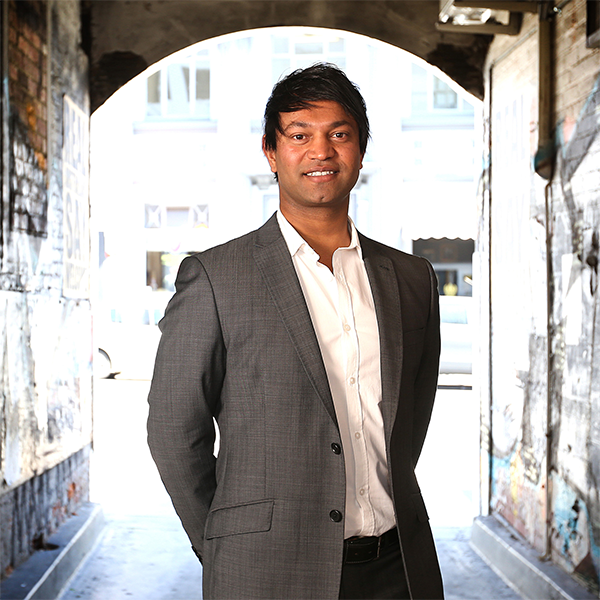
Recovering, Rebuilding, Reimagining: Transformation Post-Disaster through Arts Informed Practice in English Language Classrooms
Professor Peter O’Connor
Professor O’Connor is an internationally recognised expert in making and researching applied theatre and drama education. He has made theatre in prisons, psychiatric hospitals, earthquake zones and with the homeless. He was the founding director of Everyday Theatre, a national theatre in an education programme on preventing family violence and child abuse that has worked with over 60,000 children.
His work in Christchurch schools following the series of earthquakes lead to UNESCO funded research and programme development and the development of the Teaspoon of Light Theatre Company. In 2012 he was named the Griffith University School of Education and Professional Studies Alumnus of the Year. Peter’s most recent research includes multi and interdisciplinary studies on the creative pedagogies and the arts, the nature of embodied learning and the pedagogy of surprise.
In 2019 the play he directed with the Hobson Street Theatre Company, New Zealand’s only theatre company for people who are or have been homeless, won the Arts Access Creative New Zealand Community Arts Award. He has continued his theatre making with the homeless at the Museum of Contemporary Art in Los Angeles with the Skid Row Housing Trust.
Peter will be sharing some inspiring stories of individual and community transformation brought about by these programs.
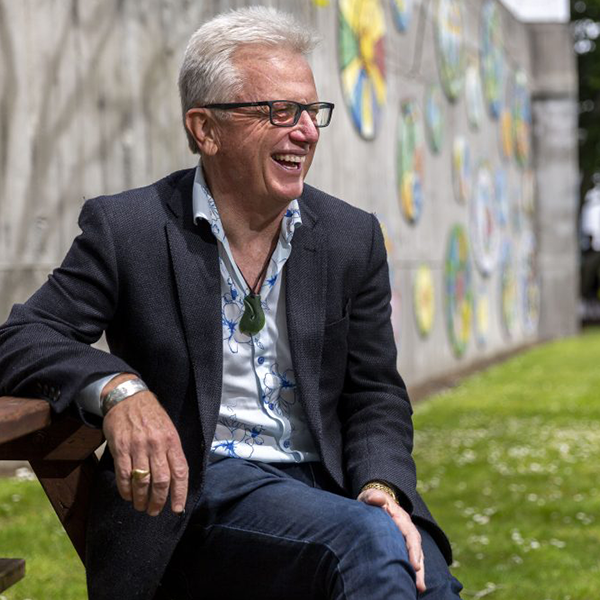
Everyday experience and little changes: a different perspective on big ideas and transformative education
Associate Professor Kelly Freebody
Kelly’s research interests draw on methodological innovation and theory development in the area of applied drama for social justice – focusing on intersections between English Language Teaching, drama, social justice, education, and qualitative research methods.
Kelly is a qualified secondary drama and English teacher, with experience teaching in Australia, the UK, Hong Kong and Taiwan. Kelly coordinates core pedagogy units in The Combined Degrees in education, with a focus on creative and critical pedagogy, school-community relationships, and pedagogies of hope.
Abstract
In this pre-conference workshop, Associate Professor Freebody will explore how the small teaching moments available to us as teachers, students, parents, and community members can be drawn together to build transformative education. Using a drama based workshop, running a short process drama and a series of drama conventions, Kelly will explore the role of teachers and educational institutions in an increasingly turbulent global environment. The centrality of intercultural experiences, critical reflection, metacognition and empathy will be explored.
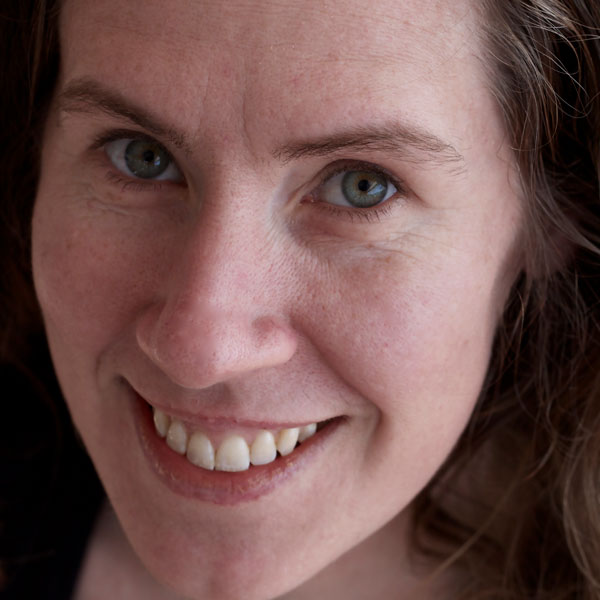
Transformative Journeys in Education
Dr Patrick Pheasant
As Chief Executive Officer at NEAS Australia, Patrick brings 20 years’ experience in applying drama, TESOL and teacher training methodologies across ELICOS, high school, vocational education, higher education and corporate sectors in Japan, the Netherlands, the United States and Australia to a dynamic systems perspective with a global outlook.
Patrick has held multiple senior management positions in education and has extensive experience in change management, including a graduate management qualification from the Australian Graduate School of Management (AGSM).
Patrick’s recent PhD research at the University of Sydney is in using process drama in TESOL. He is past Director at the University of Sydney Centre for English Teaching, past Vice-President of the University English Centres of Australia (UECA) and past Convenor of the NEAS Advisory Council.
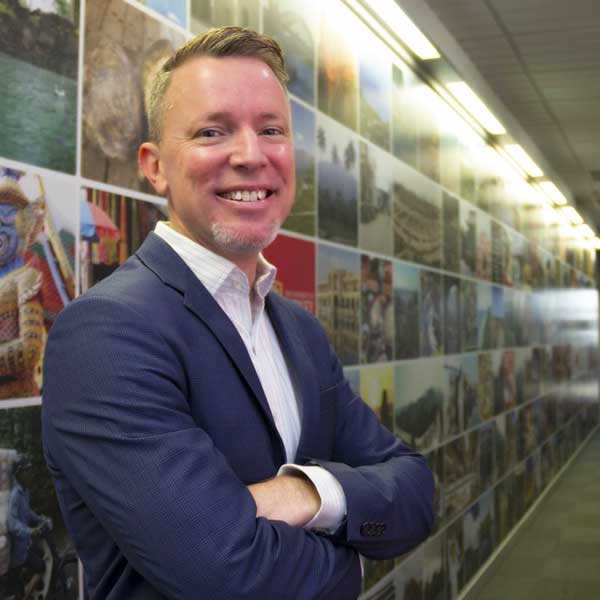
The BlackTies – Sydney’s premier professional magician group
Founded in 2012, the Black Ties have become the industry leader in magician performances, trusted by big name companies such as PWC, Blackmores, Samsung, NAB and major charity organisations such as Children’s Starlight Foundation and the Cure Brain Cancer Foundation.
Each magic performance by The BlackTies is a product of countless hours of practice, training and dedication.
Get ready to be amazed!
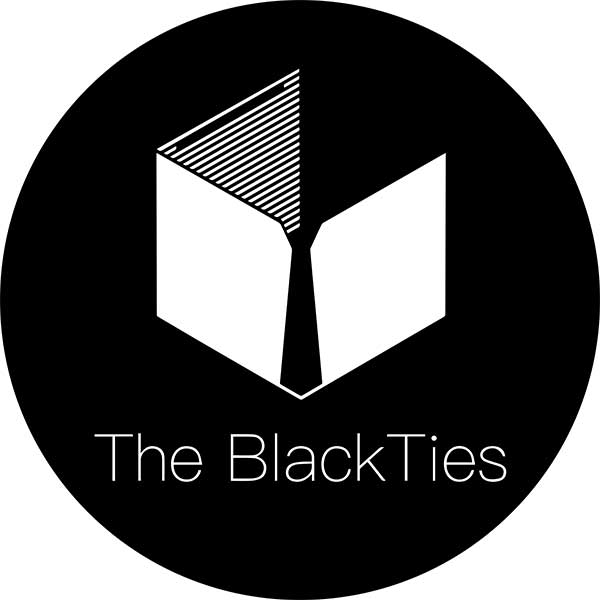
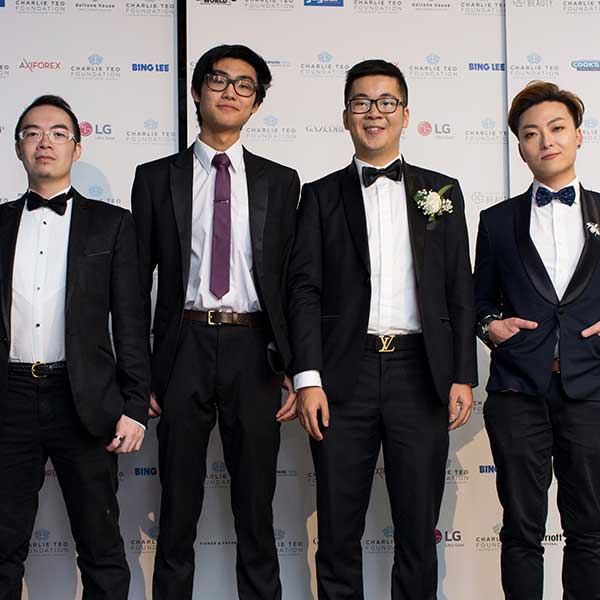
Session Speakers
Engage your brain – how your right brain can enhance your management
Lyndon de Valle
UNSW Global
Date/Time: Wednesday 06 May, 09:30am
Parkview 1-2
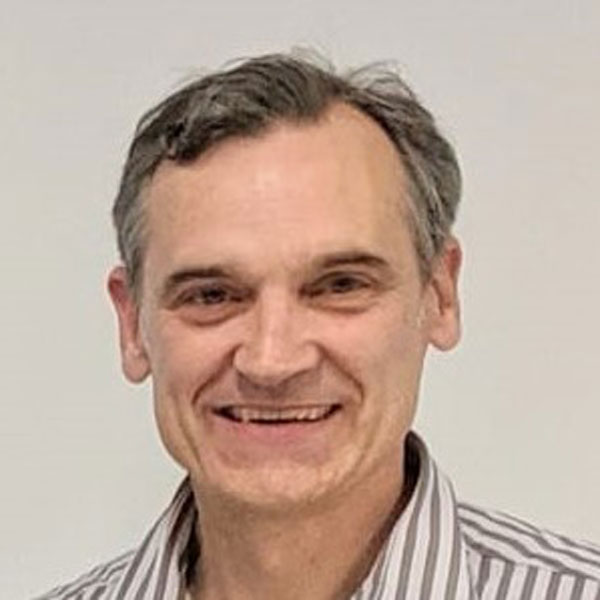
Abstract
Businesses are now more openly seeking transformative adaptation and this can expose and challenge the organisation’s capacity for agility and inter-cultural sensitivity. True transformation requires new approaches to management which encompass not only cognitive skills but greater emotional perception as well. The breakthroughs that an individual manager makes on managing their emotional self also offer the organisation the greatest transformative breakthroughs, allowing it to adapt into the best version of itself. John Mayer, one of the founding researchers into emotional intelligence suggests that teaching and developing emotional knowledge can make a difference in the management of ourselves and others. Extending ourselves beyond our intellectual and planning-side of the brain can help us harness our emotional intelligence to help us become more context sensitive and intuitive in decision-making. This workshop will offer insights for understanding and realising the emotional side of management. The conscious development of emotional literacy is a powerful transformative means for managers to operate effectively and meet the expectations that are now required of them. The workshop will offer exercises that elicit a shift in perception as well as strategies to enhance emotional perceptions in daily work practice. This will highlight new sensitivities that attendees can use to transform their work practice to a more awakened and emotionally intelligent state.
Bio
Lyndon de Valle is the Education Manager for Foundation Academic English at UNSW Global. He completed the IDLTM in 2018, which offered the intellectual skills and applied reflective practice to enable him to make the adaptation from teaching into education management. However, the thirty years that preceded this could be described as a self-education in emotional development.
He has lived and taught in India, Hong Kong and China, then returning to Sydney in 1998 to teach at UNSW. Lyndon firmly believes that management is not a science, but a shared space, where emotional breakthroughs have transformative powers. He continues to develop himself emotionally and spiritually and help in transforming the organisation and the teams he is part of.
Quality Assurance 101; Getting the most out of your NEAS membership
NEAS
Date/Time: Wednesday 06 May, 09:30am
Parkview 3-4
Abstract
Who exactly are NEAS and how does your membership benefit you? Meet one of our friendly and industry-expert NEAS Quality Assurance Assessors and get answers to all the questions you always wanted to ask, including: What’s the best way to prepare for a NEAS visit?
How can I get the information I need from the NEAS website? What templates & forms are useful for me? What professional development does NEAS offer?
What’s the difference between Quality Assurance and compliance? And many more!
The NEAS Quality Learning Series workshops are designed to provide professional development to both ELT teachers and managers using expert advice based on the Quality Assurance Framework.
Workshops are three hours in length and conducted at our member centre locations around the country. NEAS QLS workshops are free for all staff of Quality Endorsed Member Centres and Associate Members.
Courageous Conversations
Sandra Pitronaci and Barbara Craig
Macquarie University
Date/Time: Wednesday 06 May, 11:30am
Parkview 1-2
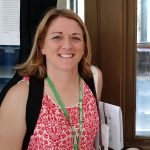
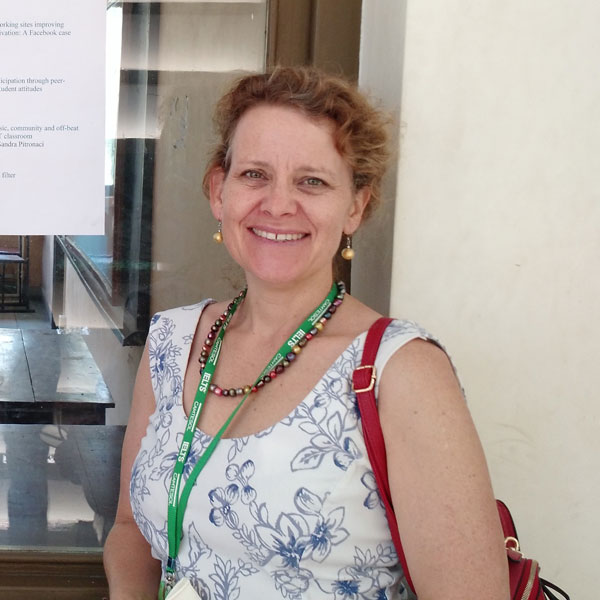
Abstract
Why are the tough conversations so tough? As our paths intersect daily with those we teach, lead and advise, why do we choose to quietly avoid confrontations, and let challenging behaviours slide, in the hope that they will somehow resolve for the better? Or why do we sometimes react defensively, and self-righteously refuse to back down? Is assuming the false persona of the ‘strong leader’ and brashly tackling challenges head-on the only alternative? Or is there a middle path, a path of quiet courage that allows us to stand in our truth, allow space for the truths of others, initiate deep reflection, and empathetically talk things through?
This workshop will help build the courage of managers, teachers and advisors to approach the challenging situations and conversations they need to approach with courage, empathy, and respect. Be prepared to speak of your challenges, and experiment with your courageous conversation by applying a suggested conversation framework and actively engaging in role play situations, where authentic emotions will be explored. Learn from current research and best practice, and from the teachings of influencers such as Brené Brown, Simon Sinek and Margaret Wheatley. Be ready to engage, debrief, set goals, and, if you are courageous enough, follow up with your fellow participants. Behaviour is contagious. Practising courage and empathy in our educational domains can be truly transformative, for ourselves and for those we knowingly and unknowingly influence.
Bios
Barbara Craig
From both formal training and the school-of-hard-knocks, Barbara continues to learn about courageous (and, many times, not-so-courageous) conversations, exercised in past and current professional roles in schools and universities as teacher, counsellor and leader. In 2017, she won the English Australia Award for Academic Leadership, in recognition of her work as Head of Academic Programs and Head of Centre at Macquarie University English Language Centre. She is currently Associate Lecturer (Teaching Specialist) at Flinders University and, aside from enjoying being back in the classroom, she is researching leadership practices in ELT in Australia.
Sandra Pitronaci
Sandra has been in the ELT sector for over 12 years in teaching and academic leadership roles across ELICOS colleges and university English language centres. She has served on the English Australia NSW AMSIG Committee for over 5 years, and is an active member of IATEFL LAMSIG. She is currently in the Department of Linguistics at Macquarie University, serving in the role of Associate Lecturer (Teaching & Leadership) and Convenor Graduate Certificate of TESOL, where she is earnestly training the next generation of eager English language teachers, and fervently seeking out practicum placements for her students. She is also Reviews Editor of the English Australia Journal, and if you accidentally catch her eye across the room, she may zealously approach you to commission a review or offer you a prac student.
The transformative power of mindfulness training in ELT
Dr. Georgi Toma
Auckland University of Technology
Date/Time: Wednesday 06 May, 11:30am
South Wharf
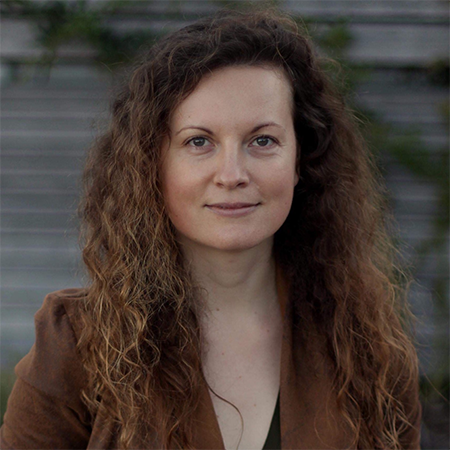
Abstract
This workshop is largely experiential. While it draws on scientific research, the session’s main objective is to give you concrete tools that you can implement in your life now. New scientific developments in the field of cognitive neuroscience and their impact on our understanding of stress and the mechanisms of mindfulness training will be briefly discussed, followed by self-reflection activities and mindfulness techniques.
In the first part of the session we will look at how we act in stressful situations and what are some ways to cultivate mindful responses rather than automatic reactions. These techniques can be used when you teach, when you have a staff meeting, a difficult conversation, or a fight with your partner or children.
The second part of the workshop is dedicated to strategies we can employ with others to ensure communication flows smoothly. We will look at ways to help our students/staff members/family members navigate difficult emotions and bring clarity to difficult situations.
Lastly, we will look at ways to cultivate balance and harmony in our daily personal and professional lives.
Bio
Georgi is a mindfulness and creativity teacher and researcher, a world traveller and a wild child. She currently teaches creativity and design thinking in the Faculty of Design and Creative Technologies at the Auckland University of Technology. She is the founder of the Heart & Brain Education Foundation, a non-profit organisation that delivers well-being and mindfulness training to the community (www.heartbraineducation.org).
Georgi is the creator of three well-being programmes: Thrive for teensTM, Thrive for busy peopleTM and Thrive for teachersTM. She is currently investigating the impact of Thrive for teens and Thrive for teachers on stress, well-being, burnout and creativity in public schools in Auckland as part of her second PhD.
Georgi’s work brings together her knowledge and experience of mindfulness, meditation, tai chi, English language teaching, neuro-linguistic programming, business development, and pancake making. Her globetrotting adventures took her to Transylvania, New York, Barcelona, Sydney and Auckland. While living in these places she worked, laughed and danced with people from many different cultures. This allowed her to learn that there are many ways we can look at the world and even more ways in which our stories share common threads of hope, struggle, and love, irrespective of where we are from.
Transformations: from teacher to manager
Sue Gollagher, Paul Forster & Patrick Donoghue
ICTE, The University of Queensland, Brisbane
Date/Time: Wednesday 06 May, 01:45pm
Parkview 1-2
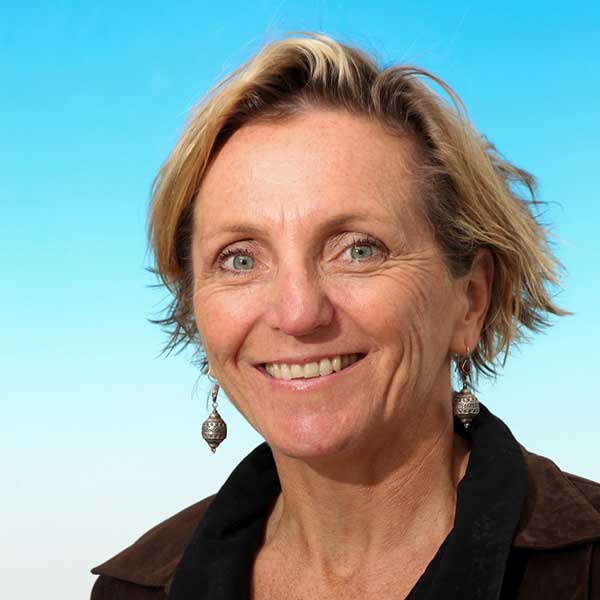
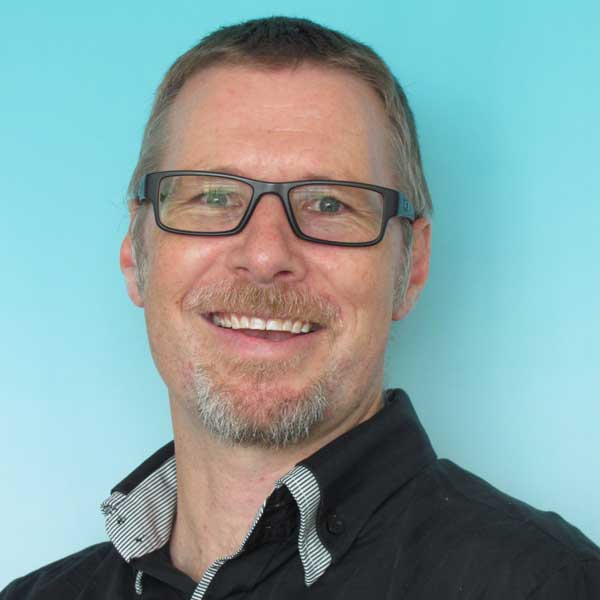
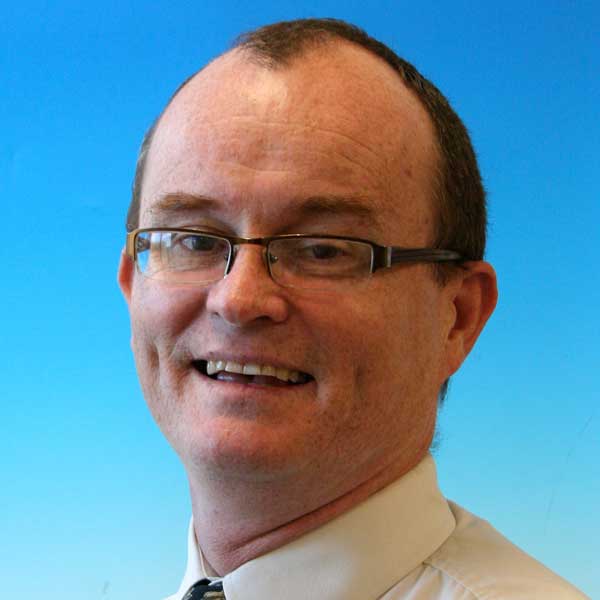
Abstract
The route to becoming an English language teacher is relatively standard, but teachers becoming managers face a daunting array of pathways. Some teachers become managers through study: they may undertake an ELT Management qualification such as IDLTM or an IH DoS course. They write essays and assignments and then learn to apply the theory to their workplace. Some teachers become managers without explicit training: they may work their way up from co-ordinator roles; they may be thrown into the deep end when a supervisor suddenly leaves, or they may be the beneficiaries of thoughtful mentoring from an experienced colleague.
The presenters are teachers who have moved into management at different stages of their careers, for different reasons and with different levels of enthusiasm for the role. This presentation will work through some of the key learnings for someone new to management, from the funny to the sublime. It will explore how professional development for managers has transformed people, careers and institutes and explore how informal partnerships shape transformation in effective academic management. Participants will have the opportunity to share their experience and their learning to benefit new managers.
Bios
Sue Gollagher was a teacher for 26 years before moving into full-time management 2 years ago. She has a DELTA, MEd: TESOL, and is currently plugging away at IDLTM.
Paul Forster was a teacher for 13 years before combining teaching and acting management roles for 4 years. He then became a full-time manager 2 years ago. He has an MA: TESOL and IDLTM.
Patrick Donoghue was a teacher for 12 years before moving into full-time management 11 years ago. He has a Bachelor of Business, MEd (TESOL) and IDLTM.
A transformative journey: Quality Assurance in a multi-campus institution
Will Alderton, Paul Williams
CQU English
Date/Time: Wednesday 06 May, 01:45pm
Parkview 3-4
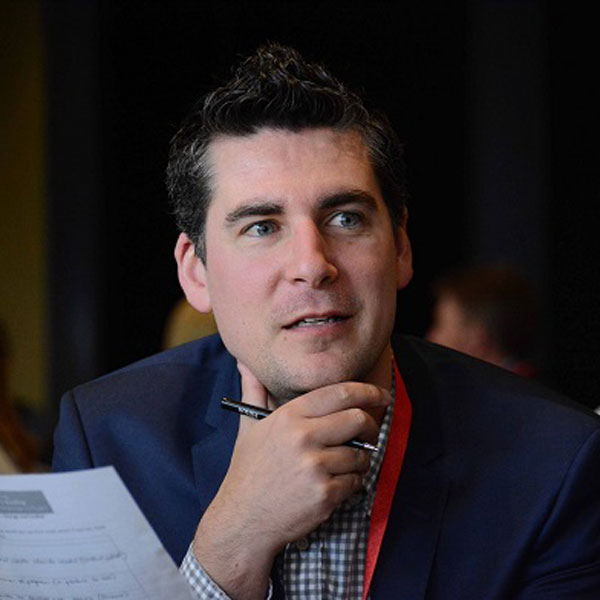
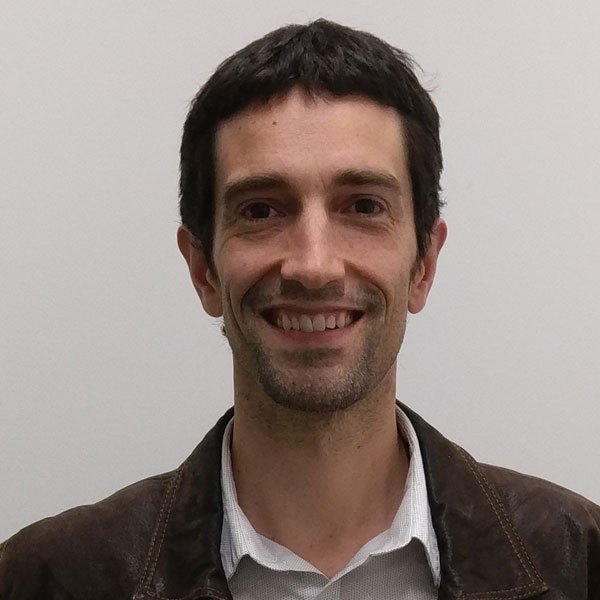
Abstract
The journey towards quality assurance in a multi-campus institution is made more challenging by the nature of its context. How does the institution maintain a balance between standardisation and meeting local needs? This is a challenge that CQUEnglish, the English language provider for CQUniversity Australia, knows very well. With four campuses spread across three states, in both regional and metro settings, and varying sizes and student cohorts, theirs is a quality assurance journey which has certainly been transformative.
This workshop will provide an overview of three key aspects of the strategy adopted at CQUEnglish: the curriculum, which has been designed specifically to ensure standardisation while meeting local needs; the continuous improvement framework, which incorporates assessment validation to identify team projects; and facilitating cross campus benchmarking of writing assessments. Participants will also be given an opportunity to discuss these aspects of their own context. The session will be of value to anyone in a multi-campus institution, from teachers through to directors, who will leave equipped with ideas to transform the quality of their centres.
Bios
Will Alderton (MAppLing TESOL, IDLTM, Cambridge Delta) is the Director of Studies at CQUEnglish, CQUniversity Australia’s English Language centre in Melbourne, and the Convener of English Australia’s Direct Entry Programs Special Interest Group. He has worked in English Language Teaching and International Education since 2005, both as a teacher and academic manager, and is an associate editor for the Language Education in Asia journal. His interests include Educational leadership and supporting the professional development of teachers, English for Academic Purposes, and promoting the wellbeing of international students.
Paul Williams (Cambridge Delta, IDLTM, CertICT) is a Senior Teacher for CQUEnglish in Melbourne. He has been teaching Business, General and Academic English courses for over ten years. His interests include all aspects of English Language Teaching and Management, particularly blended learning, cross-cultural communication, curriculum design and assessment. Paul is currently studying a Master of Business Administration at CQUniversity Australia.
Language Learning Technology Reimagined
Jarrad Merlo
E2 Language
Date/Time: Wednesday 06 May, 3:30pm
Parkview 3-4
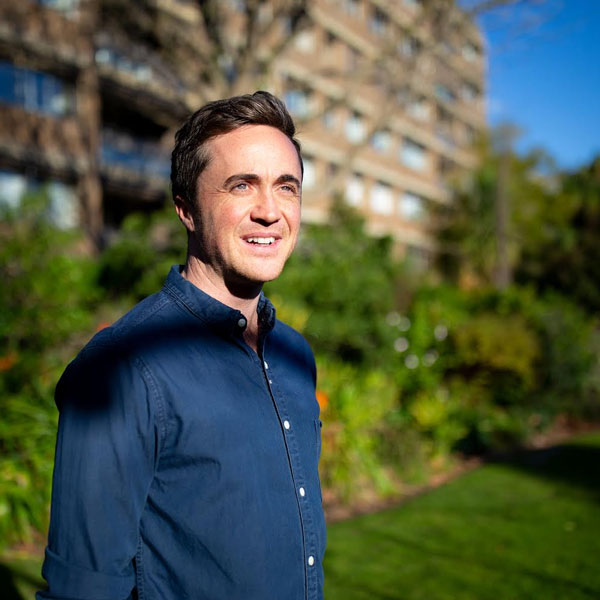
Abstract
Computer-assisted language learning (CALL) has failed to meet its expectations of increasing the depth and efficiency of language learning. Household-name apps are typically devoid of any substantive pedagogy. In the classroom, teachers face two main issues: Firstly, the technology they use is not fit-for-purpose; it was never meant to teach languages, and secondly, it is disparate; there is no “one stop shop” that houses all the moving parts of language. It’s a wonder that there is still enthusiasm for language learning technology in spite of these limitations! At the same time, traditional Learning Management Systems (LMSs) that were never intended for language learning and teaching are being used by instructional designers in language schools in a ‘square peg, round hole’ kind of way. LearningBase – an invention from the creators of E2Language – is a practical solution for these persistent issues. Though applicable to any subject matter, this innovative platform allows for the rapid creation and delivery of digital language learning, teaching and assessment. In this workshop, Jarrad, the co-founder of LearningBase, will discuss the theory and experience that led to the technology, provide you with an opportunity to learn a new language using the platform, and allow you to get your hands dirty building your own language learning activity. If you have an interest in language learning technology from the point of view of a learner, teacher, instructional designer or administrator then come along to this practical, applicable and refreshing workshop.
Bio
Jarrad Merlo is the co-founder of E2Language – the world’s most popular website for English exam prep’, and NEAS’ first and only quality assured “online” English school. E2Language has prepared close to a million candidates to date and enjoys trusted partnerships with Pearson and Cambridge-Boxhill Language Assessment. It also has a roaring YouTube following of close to a million subscribers and 50 million views. Recently, Jarrad has helped conceptualise and build LearningBase – a revolution in the creation and delivery of digital language learning, teaching and assessment, and upon which is built E2School, one of the few websites in the world that teaches grammar, pronunciation, vocabulary and the four skills and has created an online pathway from no English (A1) to near test-readiness (B2+) for anyone in the world with an internet connection and a few spare dollars. Evidently, Jarrad knows how to successfully produce and effectively market online language learning technologies.
Off road adventure in curriculum and assessment
Lisa Soviero & Clare Magee
Elucidate Education Design and JCU
Date/Time: Wednesday 06 May, 3:30pm
Parkview 1-2
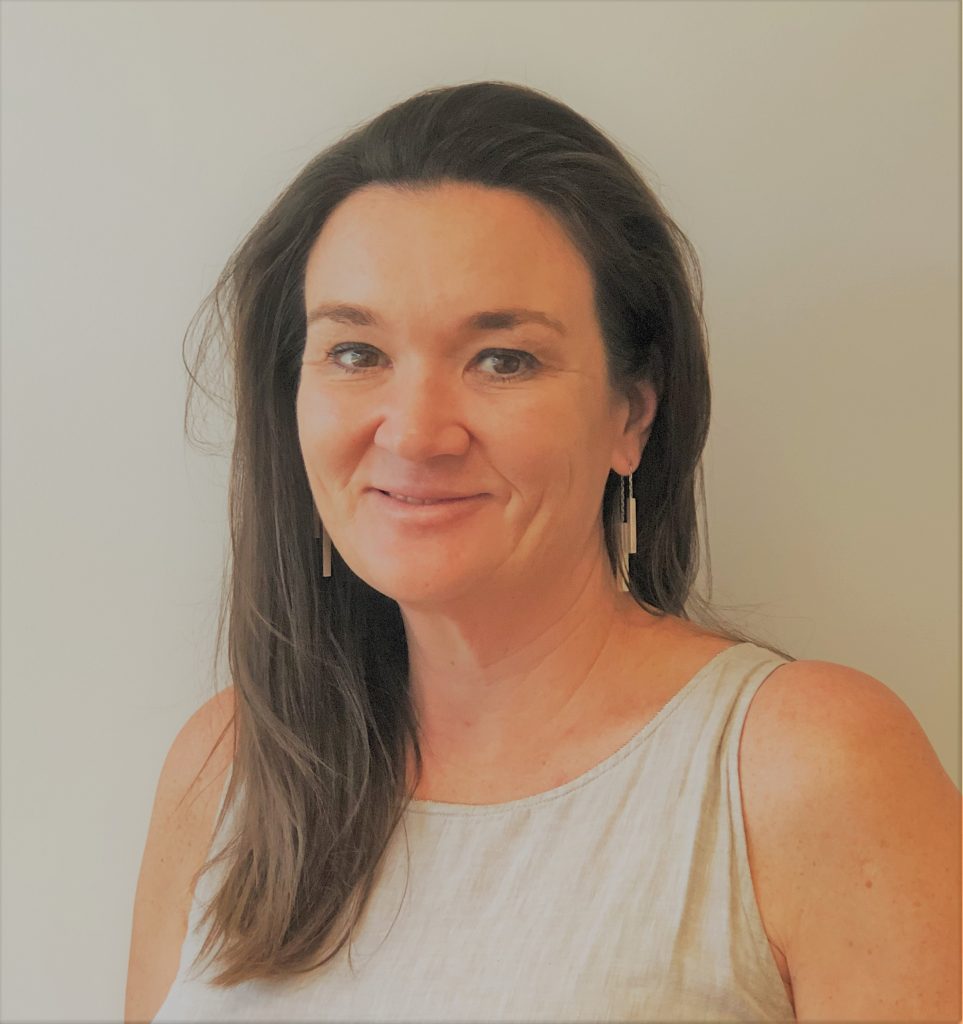
Abstract
Throughout our professional journeys, we find travel mates whose paths may intersect at just the right moments to affect meaningful transformation. In this off road adventure, Elucidate Education Design Co-directors, Lisa Soviero and Andrew Jobe and the Director of the relaunched JCU College, Clare Magee will present a story of curriculum collaboration. The final destination is 800 hours of EAP curriculum and assessment endorsed by NEAS and approved by the University’s Academic Board for direct entry purposes.
The curriculum was developed in a modular format making it adaptable for embedding within Foundation Studies, Diplomas and for use in transnational contexts where consistency is critical for quality control. The design allowed for the late stage substitution of an IELTS 7 preparation program—and any other other bends in the road which may appear.
The audience can expect to hear the travelogue of the project including: itinerary setting (scoping and mapping); vaccinations (contract negotiations and deliverable deadlines), artefacts and souvenirs (creation and implementation of materials, assessment and LMS activities); healthy and happy travellers (staffing and communications, stakeholder buy in); and Tripadvisor comments and reviews (evaluation). The session will conclude with highlights, lessons learned and a generous Q&A session followed by imaginary poolside pina coladas.
Bio
Lisa Soviero is a co-director of Elucidate Education Design, a provider of tailored, multi-modal learning and teaching solutions for education providers, enterprise and non-profit organisations.
Clare Magee is Director and Principal of JCU College (Townsville and Cairns) where she has been building the programs and profile for over a year.
Out-of-class language learning experiences in Australia: transformation or stagnation?
Professor Phil Benson and Professor Phil Chappell
Macquarie University
Date/Time: Thursday 07 May, 11:30am
Parkview 3-4
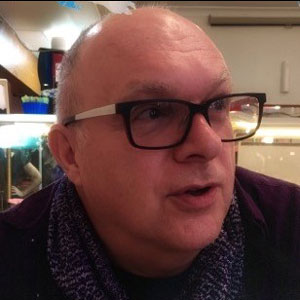

Abstract
In this session, we present findings from our ongoing research into English language learners’ transformative journeys through their new international environments. While we know a lot about what our learners experience in their classrooms and college environments, we have only just begun to understand how their living, working and socialising environments help shape their second language learning as well as their second language identities. We present findings from case studies of 20 English language learners’ experiences in multilingual Sydney. We will demonstrate how their interactions with their out of class environments present opportunities as well as constraints on their language learning experiences. To what extent do our learners become “transformed” during their international sojourn, and to what extent do they disengage with their environment and merely seek to survive?
Bios
Phil Benson is Professor of Applied Linguistics and Director of the Faculty Multilingualism Research Centre at Macquarie University. He has taught English as a foreign or second language in Algeria, Kuwait, Seychelles, Malaysia, Japan and Hong Kong, and is an enthusiastic out-of-class language learner. philip.benson@mq.edu.au
Phil Chappell is a Senior Lecturer in Applied Linguistics and TESOL at Macquarie University, Deputy Head of the Department of Linguistics and a member of the Faculty Multilingualism Research Centre. He conducts research in a variety of areas of ELT, teaches on the Graduate Certificate of TESOL and Master of Applied Linguistics and TESOL programs, and supervises TESOL research students. Phil has taught and managed overseas and in Australia in a range of English language programs. @TESOLatMQ philip.chappell@mq.edu.au
The Evolution of English Language Testing: Exploring Boundaries & Ensuring Accuracy
Vincent Blokker & David Lee
IELTS Australia
Date/Time: Thursday 07 May, 11:30am
South Wharf
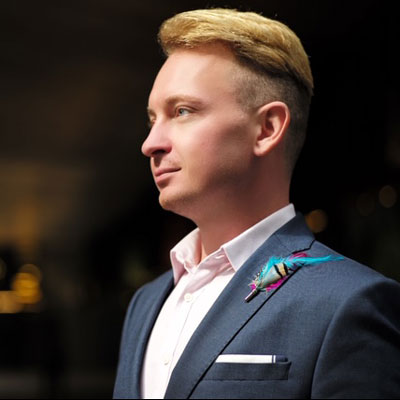
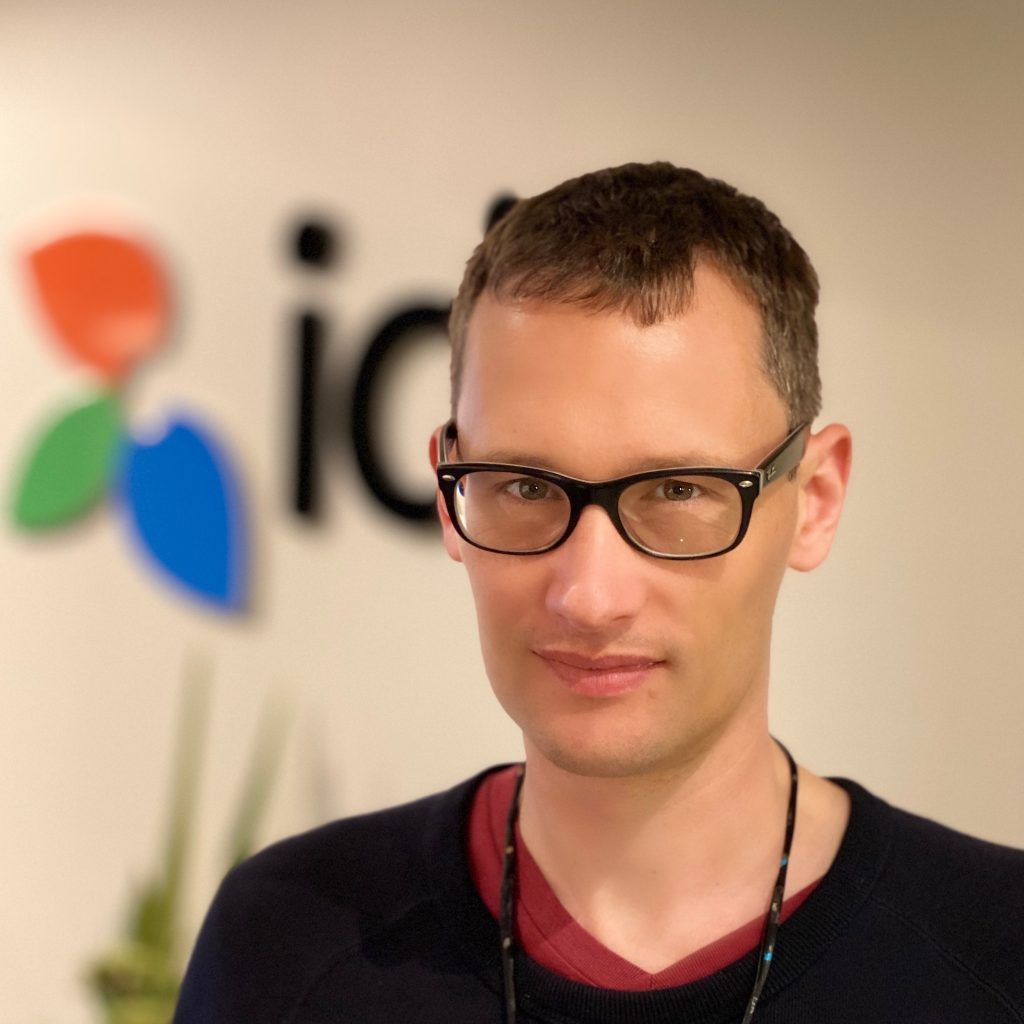
Abstract
This two-part presentation seeks to engage professionals and experts in English language teaching to discuss technological advances in English language testing.
In our digital age, the ever-present use of electronic devices, at home, work and in classrooms, have driven a change in pedagogical approaches to English language teaching. Blended learning or online language courses now co-exist with traditional face-to-face classroom-based teaching. Similarly, new developments have transformed the English language testing landscape. English proficiency tests have been developed or re-developed to attempt to meet test taker demands for flexibility and speed. Some tests offer remote testing or reduced result turn-around, while some test providers rely on artificial intelligence, in lieu of language experts, to automatically assess language skills. When English language tests are a “means to an end” for migration, work or study purposes, test taker driven demands can put pressure on the accuracy and reliability of an English language proficiency assessment.
For IELTS, the transformation from a paper-based test to a computer-delivered test was underpinned by a desire to offer choice to test takers. At the same time, the test maintains its global gold-standard of reliability to organisations who rely on the results. The way we assess spoken and written English acknowledges contemporary developments and discourse in language testing delivery and technology. It is balanced with a commitment to unbiased and accurate marking by human English language experts. How do we do this? Join us for an in-depth explanation.
Bios
Vincent works as Stakeholder Engagement Officer at IDP Education, based at the company’s headquarter in Melbourne. He promotes awareness and provides support to the wide range of organisations that use IELTS for entry, registration and migration purposes. Prior to this, he spent five years in operations and marketing for the world’s leading English language proficiency test. In this role he has developed and presented IELTS information webinars for test takers, written test preparation blogs, and led a customer support team. As a result, Vincent understands both the demands of test takers, and the requirements of stakeholders who accept IELTS results. Vincent holds a PhD in international relations and is currently working towards an MBA.
Vincent believes English language tests should be human-centric, while combining the highest quality controls, security procedures and integrity management practices to ensure all stakeholders can trust in its results.
David Lee was the inaugural IDP:IELTS Examiner Standards Manager for the Writing module beginning in 2015. He His role is to ensures IELTS maintains fair and reliable assessment for IELTS Writing test-takers candidates globally. David has been involved in IELTS since 2007 as an Examiner, Examiner Trainer and Assistant Principal Examiner. With a background in Information Management, David embraces a data-driven approach to support examiners and test-takers, and considers that leveraging emerging technologies is key to ensuring positive outcomes for all stakeholders across the assessment landscape.
Maintain a competitive edge in the outbound European Market
Ash Rees
Study Travel
Date/Time: Thursday 07 May, 11:30am
Parkview 3-4

Abstract
The global international student recruitment landscape is incredibly complex and in recent years, has become increasingly competitive. The number of factors that influence choice in destination and education provider, are huge – competitive tuition fees, post-study work rights, immigration policies, on top of general student interests and requirements.
When it comes to attracting and retaining students from the European market, the equation becomes considerably more complicated given the diversity of countries within it. Each has its own culture, preferred methods of communication, and student mobility trends.
So what does the European market look like going into 2020? What are students looking for? What is the best way to reach them? And how can your college and offering stand out amongst the competition?
This presentation will give you an insight into current and emerging trends within the European market to help you make informed decisions when developing your recruitment strategy. This includes the latest data on student numbers, popular courses, favoured destinations, accommodation needs, and more.
StudyTravel statistics have been a trusted source for those working in international education and government organisations for nearly 30 years. Data is gathered straight from the source, including agencies and agent associations, educators and educator associations, and students themselves; and is not available anywhere else.
Bio
Ash Rees is an Australian native turned London local, with over 10 years’ experience in the international education sector.
Ash is currently Manager of the StudyTravel Alphe Conferences, one of the leading providers of recruitment events for international education agents. Held in 11 global locations, these events connect agents and colleges face-to-face to help facilitate partnerships.
Thanks to her extensive time at StudyTravel, which also produces ST Magazine, a monthly agent publication, Ash has gained an in-depth knowledge of the global recruitment market and trends, as well as effective sales, student recruitment and agent engagement strategies.
Ash graduated from the University of Western Australia in 2006, with Bachelor of Commerce, Marketing and Management.
One way or return? The journey from practitioner to researcher
Ivano Buoro
Tafe NSW
Date/Time: Thursday 07 May, 12:20pm
Parkview 3-4
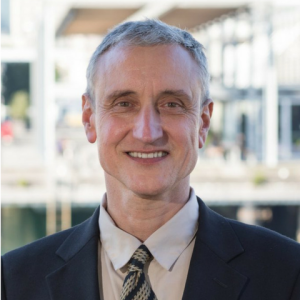
Abstract
The journey from VET practitioner to academic researcher is not an easy one,
especially for VET teachers whose educational research training in action and ethnographic research have been inculcated through years of practice. This paper discusses the highlights of the journey from practitioner to practitioner researcher including a discussion of the nature and value of practitioner research to individuals and institutions.
Bio
Ivano Buoro is an educator and researcher based in Sydney, with broad experience in managing English language programs and schools in both ELICOS and migrant contexts in both private and government enterprises. Ivano is acutely aware of the tensions that drive ELICOS in vocational education and training, higher education and private enterprise, and understands the significant role that NEAS plays in achieving excellence in English language teaching and learning.
As an educator Ivano has taught English and Italian for over 30 years in Japan, Europe and Australia. Ivano studied both in Australia and in the UK and is a Founding Fellow of The Chartered College of Teaching, London, where he also holds a Fellowship in TESOL.
He is a passionate advocate of English and foreign language training, intercultural skills, and the sociolinguistic role of languages in knowledge acquisition and retention. His current research interests include motivation in education, practitioner research, the value of including languages other than English in mainstream courses, the role of English as a lingua franca, and the intrinsic value of all languages. He continues to publish and speak nationally and internationally on these issues.
Transforming Your Curriculum: Insights into our Journey to Prepare Students for Success in the 21st Century
Jason West
UTS Insearch
Date/Time: Thursday 07 May, 12:20pm
Parkview 1-2
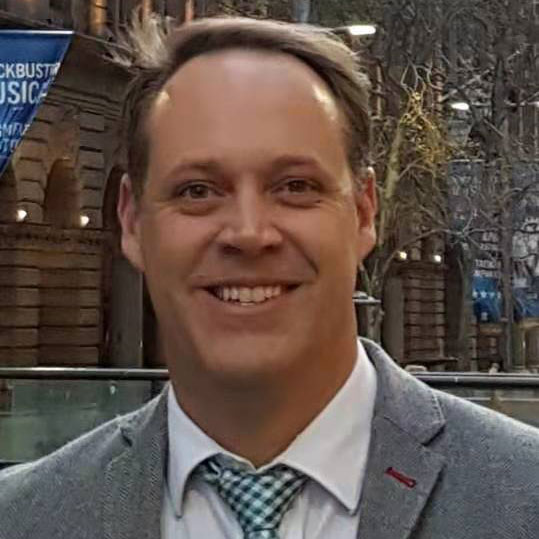
Abstract
True transformation of the self or the organisation starts first on the inside and works it’s way out. Transformation occurs when you change the way you think, because it’s the way you think, that changes the way you do!
In education, simply teaching students to the test, won’t cut it. Our students need the 21st Century skills that enable them to manage complexity, ambiguity and the challenges of a changing world. In a multicultural, plurilingual world, students with the cultural and language skills, will excel as global entrepreneurs and global citizens. UTS Insearch has been on its own transformative journey, commencing with self-reflection, listening to our students and teachers, and observing the changing landscape in English language teaching. This session shares valuable insights into the transformation of our ELT Curriculum, so that we can prepare students for success now, at university, and into their working lives.
When we started our curriculum review process, we initially thought it was a case of taking our existing curriculum and refreshing the content, a new version if you like. What we’ve discovered, is that the transformation required, has influenced many parts of our organisation and has required some serious introspection; how to bring all parts of the organisation together to deliver best practice (NEAS) pedagogy, through cutting-edge curriculum design principles. We’ve also changed the way we think about our curriculum, explicitly stating the learning outcomes for students, ensuring that these outcomes are met and enhancing the student experience.
Specifically, this session will share the salient steps in our transformation, some of the key lessons learned, and offer advice to other educators, on how to approach genuine transformational change, through your curriculum.
Bio
Jason West is the Director of Studies at UTS Insearch, the college pathway provider of English language courses, for students heading to the University of Technology Sydney. He has more than 13 years’ experience, teaching and leading ESL programs and teams. Prior to joining UTS Insearch, Jason was previously the Head of English at SILC (Shanghai Institute of Language and
Commerce) a JV between UTS and Shanghai University.
He has more than 10 years’ experience teaching TESOL courses to predominantly Chinese students in Shanghai, and more generally to international students in both Shanghai and Sydney. He has presented at several international conferences on ESL related topics. Jason is passionate about developing teams, to help our students build their English language skills for success at university and as global citizens.
How far have we come with language assessment in the last 30 years?
David Booth
Pearson
Date/Time: Thursday 07 May, 12:20pm
South Wharf
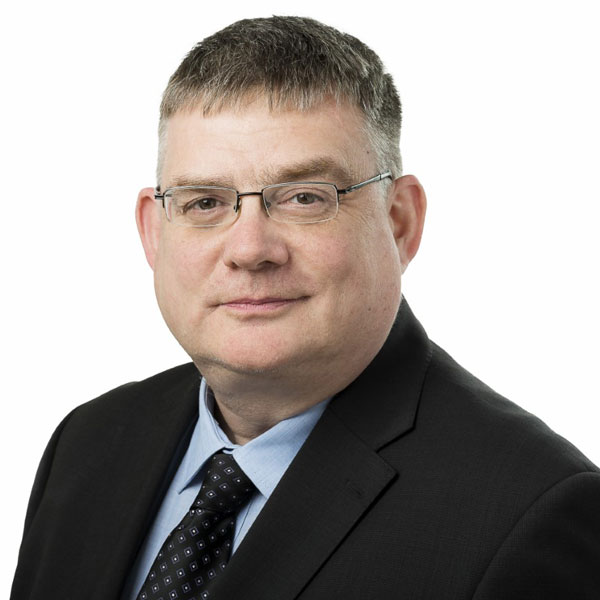
Abstract
Technology has revolutionised many aspects of our lives. Our businesses, for example, rely on multi-disciplinary, remotely based teams, communicating through email, chat and virtual meeting spaces. We share ideas across the globe, meet mutual deadlines and corporate goals often never having met our business counter parts. Our home lives are dominated by screens and machines often uniquely personalised for our specific tastes and use.
Technology has changed the way we work but the principles of management have also changed. Many organisations make collaboration and communication a central aspect of their business culture embracing inclusion and diversity.
How has the Education sector embraced change? To what extent has the application of technology and development of pedagogy moved with the times. What are the cultural and social barriers which have impacted on change in the education sector? I have been working in the language assessment business for the last 30 years across primary, secondary, adult and academic contexts. I will use examples from my experience as a language educator to address the question ‘how far have we come with language assessment in the last 30 years’ and try to relate some of those insights to general Education.
Bios
David Booth is the Director of Test Development for Pearson English Assessment. He is responsible for the development of specific Pearson tests ensuring that all test development processes are executed to the highest standards and that test material is of the highest quality and fit for purpose. David works closely with other staff at Pearson to develop assessment and learning solutions to meet specific customer requirements.
David’s main expertise is in the development and revision of tests and he has given presentations at major conferences on this theme. David has also contributed articles on specific test development projects in published research notes. David’s other interests include corpus linguistics and assessment for specific purposes.
Before joining Pearson, David worked for 10 years at Cambridge ESOL, a part of Cambridge Assessment. David also has extensive academic management, teaching and teacher training experience working for the British Council in South Korea, Hong Kong and Malaysia.
Transforming Student Lives
Anna France
Langports
Date/Time: Thursday 07 May, 1:55pm
South Wharf
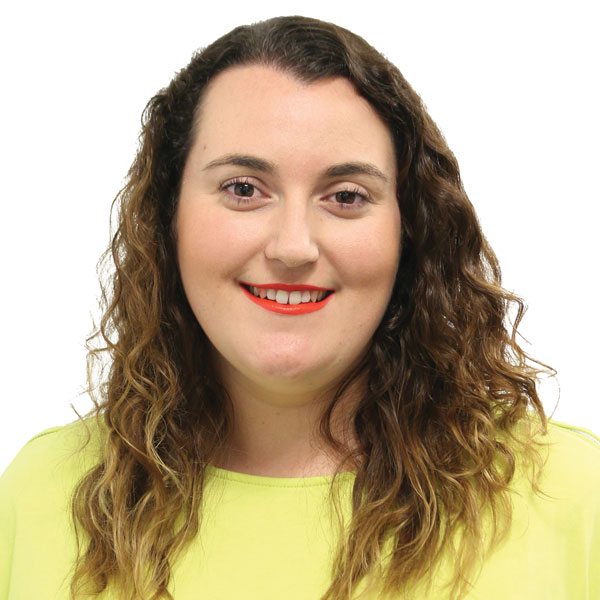
Abstract
Everyone in the International Education Industry knows what a difference we make to the lives of our students. We are fortunate enough to work in an industry that transforms lives daily.
However, studying overseas can only be afforded by a privileged few and Langports wanted to use its commercial success to reach out and help those from disadvantaged backgrounds to. So gaining inspiration from Mohammed Yunus, the Nobel Peace Prize winner 2007, Langports became a ‘social business’, and not only exists commercially but also to benefit society.
In this session, I will present the way in which The Langports Foundation has worked for 12 years with the international education industry to make a difference to the lives of disadvantaged children through educational programs in Australia and overseas. Stories of these children that
have been helped through our Foundation are unimaginable, but by providing them with opportunities has made their lives richer and has seen them transform into strong young adults with a bright future.
Bios
Anna France, the CEO of Langports started her career in the industry as a small girl learning from her father and founder of Langports John France. As a homestay sister and keen observer, she saw the difference that learning English made to the international students who visited Australia.
Studying English transformed the lives of students she met and in January 2005 she began her career at Langports as the Junior Receptionist.
Over the past 15 years, Anna has worked in many roles at Langports looking after the students as Receptionist, Enrolments Officer, Accommodation Officer, Activities Officer, Student Services Manager and then moving into the Marketing Team as Marketing Manager then Marketing Director. In 2019, Anna took over the role of CEO at Langports and now leads the company who’s vision is ‘To be the BEST private English college in Australia’. Defining “best” as having the highest level of student satisfaction and making a positive contribution to the lives of all associated with it.
From Teacher to School Owner: A Transformational Journey
Kit Perry
Townsville International English School
Date/Time: Thursday 07 May, 1:55pm
Parkview 1-2
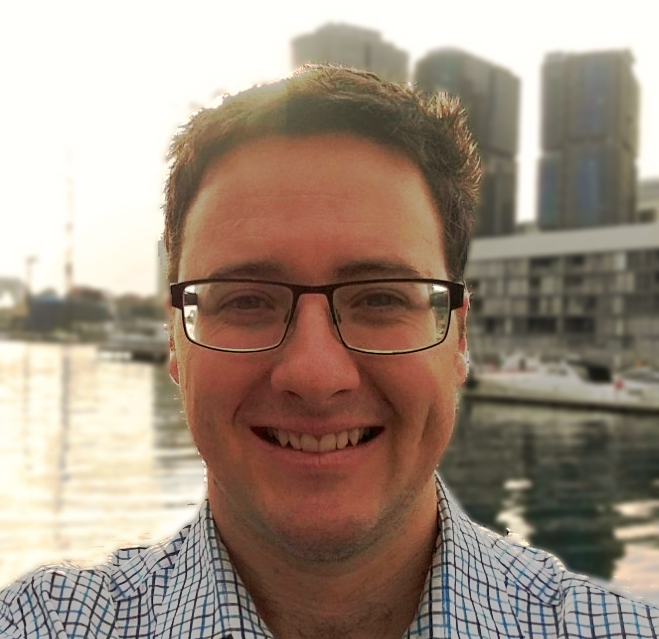
Abstract
I started my school Townsville International English School (TIES) when I was 25. I had been teaching at a local prestigious private school for the five years prior to this, but I had become disillusioned with teaching. Actually, maybe that’s not the right way to put it – I had become disillusioned with teaching at that particular school and the way that it was being run. Don’t get me wrong, it was an incredible school with amazing facilities, fantastic students and great teachers, but I wasn’t happy. In my presentation I will talk about
three chapters to my transformative journey from teacher to school owner:
- Why I decided to leave what should have been my first and final teaching position.
- The process involved in starting my own school from the initial concept to realisation and accreditation.
- I will also detail the highs and lows along my journey over the past ten years of successfully running an English language school in a regional location.
Bio
I am a passionate educator who believes in the intrinsically transformational nature of a great teacher. Teaching is my vocation, and I have been drawn to it since an early age. My father often said to me as I was growing up that I should choose a job that I loved. He would say that it didn’t matter if I became a ‘ditch digger’, a ‘surgeon’ or a ‘bus driver’, but that I should choose something that I loved and would enjoy doing each and every day. It was something that really stuck with me throughout my adolescence. At the same time, I was fortunate enough to be taught by some incredible teachers.
They were passionate, motivational, inspiring people who worked hard to connect with their students, and make a difference. They definitely made a difference to me.
I believe that great education is a result of placing students at the centre of teaching and learning, so my pedagogy always begins with the needs, interests and motivations of my students as a starting point from which I can build. I always aim to inspire my students to be independent, imaginative lifelong learners. My goal isn’t simply to teach content and prepare students for an exam, but to engage them in developing the skills,
knowledge and perspective necessary to be successful, whatever that may mean to each student.
Stemming the shortages in healthcare: foreign nurses transforming themselves to be the solution
Rebecca Bush
OET
Date/Time: Thursday 07 May, 1:55pm
Parkview 3-4
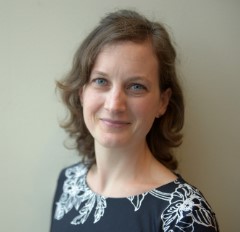
Abstract
In Australia, Internet vacancies for nurses have increased by 66% over the five years to June 2018 and this is just for nurses. The National Health Service (NHS) in the UK is facing nursing shortages in the region of 40,000. With global ageing populations, these shortages will continue increasing and demand for qualified healthcare professionals will become ever more competitive as different countries vie for their skills and patronage.
This makes it an exciting time to be a healthcare professional exploring the possibility of starting a new career and life in another country. A life which has the potential not only to transform their job and remuneration prospects but also to transform the lives of the family that travel with them and the extended family which remain behind.
OET (Occupational English Test) works with candidates on this transformational journey to make sure they are ready for day 1 of their new job and to meet the demands of both their new workplace and their English-speaking patients. This presentation will explore the different stages of this transformation with real candidate examples taken from both the classroom and candidate events.
You will leave inspired about how OET is placing itself on the frontline with healthcare regulators to stem the shortages and help match proficient healthcare professionals to vacant roles but also about how, by offering OET preparation, you have the chance to do something for society by ensuring your students have the communication skills to deliver excellent healthcare outcomes for all patients.
Bio
Rebecca Bush is part of the Education Team supporting candidates and teachers preparing candidates around the world for the Occupational English Test [OET]. She is the presenter of the popular Facebook Live Q+A sessions which OET hold twice-monthly for candidates as well as a primary contact for teachers progressing through the training programme OET offer to organisations running preparation courses.
From the UK originally, she is happy to have only needed to learn about both the British and Australian healthcare systems from the sidelines. The motivation of the OET candidates she taught and the realisation of the positive impact training healthcare professionals to have excellent communicative skills has for all made teaching OET one of the most rewarding experiences of her EFL career.
The World Traveller turned Educator
Callum Cowell
University of Western Australia
Date/Time: Thursday 07 May, 2:45pm
Parkview 1-2
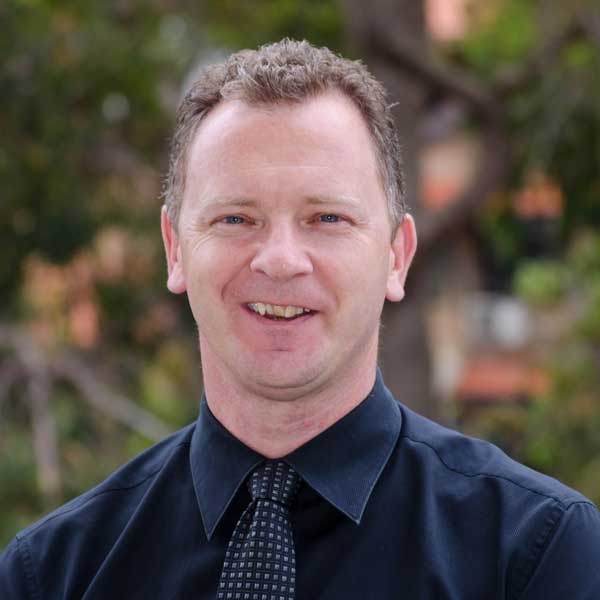
Abstract
It is a well-worn path to English teaching, the one taken by the young adventurous traveller. What starts out as a mission to explore the world, often leads to the traveller finding work along the way as an English teacher. For some, being the itinerant English teacher is just a short-term gig that provides some funds the next part of the journey. For others it is the beginning of a completely new career. That career may be one deeply enmeshed within the ELT sector where skills have been honed and developed to a level of expertise and sophistication that could hardly have been imagined when first standing up in front of a class in some far-flung exotic destination.
For still others, the opportunity to teach English leads on to other related international career opportunities. In this session, Callum reflects upon his own transformative journey from traveller to English teacher, to international manager and higher education leader. A story that many in our sector will likely relate. From something initially unplanned to something that is now seemingly, full of preparation, planning and positioning, the journey has been one punctuated with serendipity but also a preparedness to continue the explorer spirit throughout one’s career. Frustrations and roadblocks have played their part, yet ultimately they too have become opportunities for reassessment, refinement and advancement in other ways and other directions.
Callum will recall and discuss key elements (the three Rs) of his personal transformative journey: risk, resilience and reward. Come join the conversation.
Bio
Callum Cowell commenced as Director Global Engagement at The University of Western Australia (UWA) in September 2019, following 5 years as Director of UWA’s Centre for English Language Teaching. Mr Cowell has worked extensively in International Higher Education & Training both in Australia and abroad. Prior to joining UWA, he was Director of International Student Recruitment for Western Australian Government Schools and TAFE Institutes (Education & Training International).
Before joining the WA Government in 2011, Mr Cowell spent eight years at Edith Cowan University (ECU). While at ECU he held positions of Regional Marketing Manager for two years and then Head of International Marketing for 6 years.
Mr Cowell worked as an English Lecturer in the Humanities Faculty of Sapporo Gakuin University札幌学院大学 (Japan) from 1995-1999
The Chinese Standard of English and its alignment with global measures of English proficiency
Helen Cook
ETS TOEFL
Date/Time: Thursday 07 May, 2:45pm
South Wharf
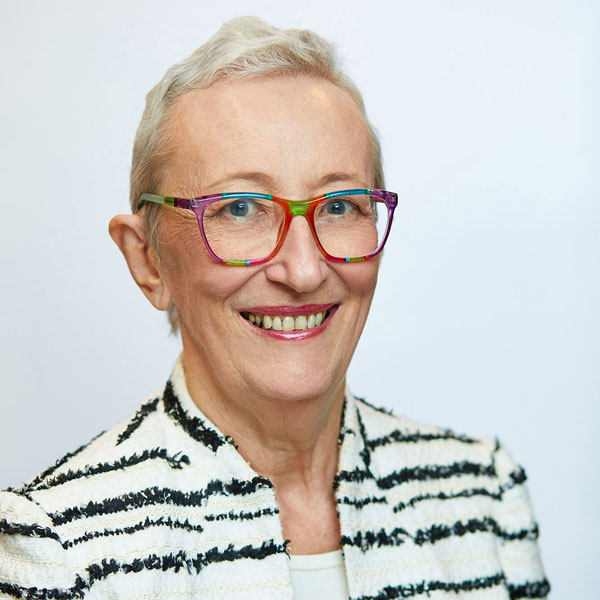
Abstract
With Chinese students forming a significant cohort in Australian English colleges, the transformation of English teaching, learning and assessment being led by the National Education Examinations Authority (NEEA) of China to develop the Chinese Standard of English (CSE) is significant. The need for a comprehensive, unified language proficiency scale for age groups and learner proficiency levels to meet local circumstances has led to a complex research process to develop the CSE, including review of other frameworks such as the CEFR.
Now that this 1-9 scale framework for English language learning and assessment has been agreed, local English programs and assessments at various levels can be developed. NEEA has also supported the alignment of global English proficiency tests such as the TOEFL iBT test, research for which has now been completed.
This initiative has the power to impact our methods of assessing future Chinese students. This session will discuss the potential impact of these initiatives in our key market and the TOEFL iBT research aligning the test to the CSE.
Bio
Helen Cook represents Client Relations (Australasia) for Educational Testing Service (ETS), the largest not-for-profit research and measurement company globally. ETS designs and delivers the TOEFL test, the most widely available test globally. As a consultant and researcher with over 30 years experience, Helen works with education institutions, organisations, agents and government regarding the TOEFL test, the most longstanding English proficiency test worldwide.
Prior to joining ETS, Helen held senior management positions in international higher education in Australia, including the role of Executive Director, QUT International. Helen has also held leadership roles and board positions in international education. From 2008- 2012, Helen Cook was Vice-President of the International Education Association of Australia (IEAA). IN 2017, Helen was offered Life Membership of IEAA.
Transformation and Thai Education
Dr Alexander Nanni
Mahidol University International College
Date/Time: Friday 08 May, 11:00am
Parkview 3-4
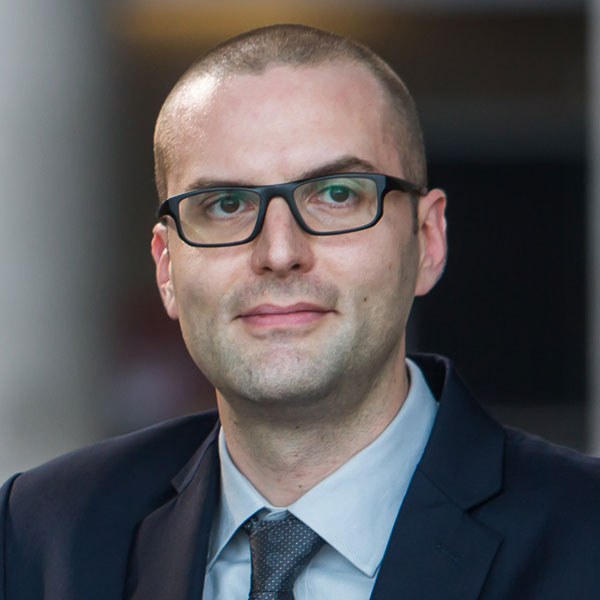
Abstract
Transformation is difficult. The education system of Thailand is in transition, and individual universities are undergoing their own organizational changes in response to an evolving economic and demographic landscape. Students embarking on their educational journeys face daunting uncertainty, particularly regarding the acquisition of marketable skills and eventual employment; however, these same students also have access to unprecedented opportunities. In this highly unsettled context, Mezirow’s (1991) framework of transformative learning is a valuable lens through which to understand the role of disorientation, dissatisfaction, and experimentation in effecting meaningful change.
This presentation explores the interplay between the reform of higher education in Thailand, the internationalization of a specific government university, and the transformative journeys of students enrolled in an English-medium liberal arts program within the university, emphasizing the ways in which managing crises can enhance sustainability. The students’ experiences are discussed in relation to transformative learning theory. For teachers aiming to equip students for their journeys, understanding the transformative potential of adversity is a key to fostering student success.
Bio
Alexander Nanni is the Associate Dean for International Affairs at Mahidol University International College (MUIC), which is located in Salaya, Thailand. He began teaching English in Thailand in 2005. From 2012 to 2018, he was the director of the Preparation Center for Languages and Mathematics at MUIC. During this time, he and his team applied for quality assurance through NEAS, becoming the first program in Thailand to do so. Alexander holds an M.Ed. in Teaching English as a Second Language from Rhode Island College and an Ed.D. in Curriculum, Teaching, Learning, and Leadership from Northeastern University in Boston.
How did I get here? From back-packer to rewarding career in international education
Dr Pamela Humphreys
Macquarie University ELC
Date/Time: Friday 08 May, 11:50am
South Wharf
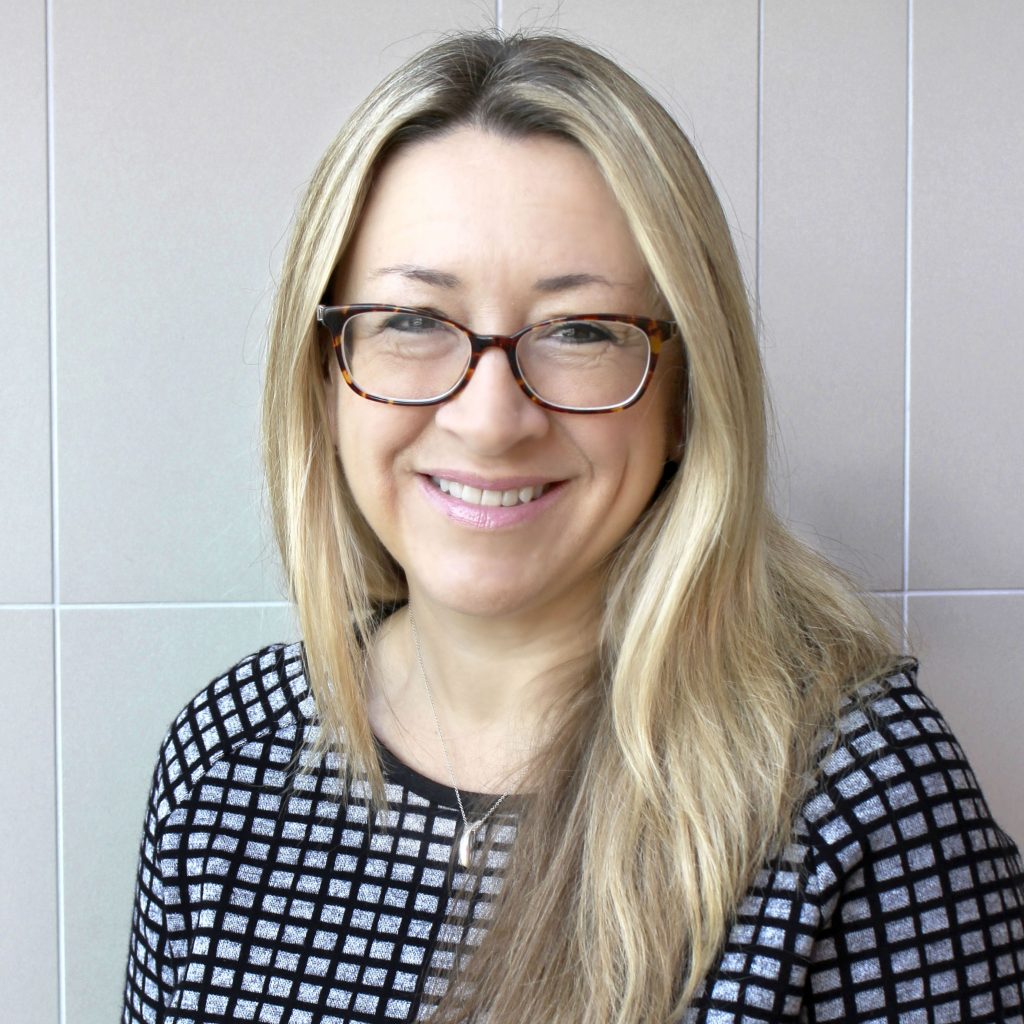
Abstract
Dr Pamela Humphreys has worked in international education in five countries for over 30 years. She holds a PhD, is a Senior Fellow of both the HEA and IEAA, a TEQSA Expert, and published author. She is currently the Director of Macquarie University International College and English Language Centre, where she was a 2019 finalist in the Educational Leadership category of the Vice Chancellor’s Awards. But how did she get here?
Originally planning to travel the world and avoid a career, how did a back-packer end up with a rewarding career in international education? This presentation will use pivotal moments in Pamela’s professional journey to provide tips to those on their own leadership journey in the sector.
Bio
Dr Pamela Humphreys is the Director of Macquarie University International College and English Language Centre. She has worked in the English language and higher education sectors for 30 years in the UK, Europe, Asia and Australia. She was Assistant Principal Examiner for IELTS and exam item writer for many years. She has won multiple national awards for her work in post-entry language support and for educational leadership, and has published widely on academic language and learning.
In 2016, her PhD thesis, on the topic of English language proficiency in higher education, was awarded the IEAA award for outstanding postgraduate thesis in international education. In 2018, she became Senior Fellow of the Higher Education Academy and, in 2019, she became Senior Fellow of IEAA and an approved TEQSA Expert in her field. Pamela is passionate about supporting EAL students’ language and literacy needs before and during their university studies.
Transformations in UOW College’s ETS Assessment Tasks
Ragni Prasad and Lu Qing Wang
UOW College
Date/Time: Friday 08 May, 13:20pm
Parkview 1-2
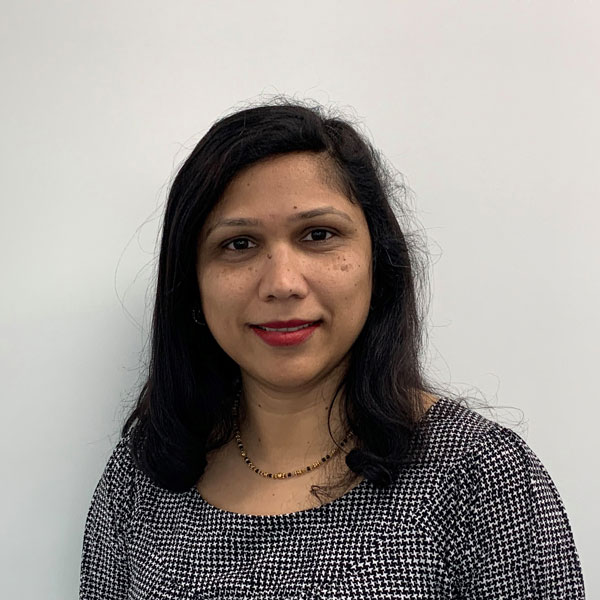
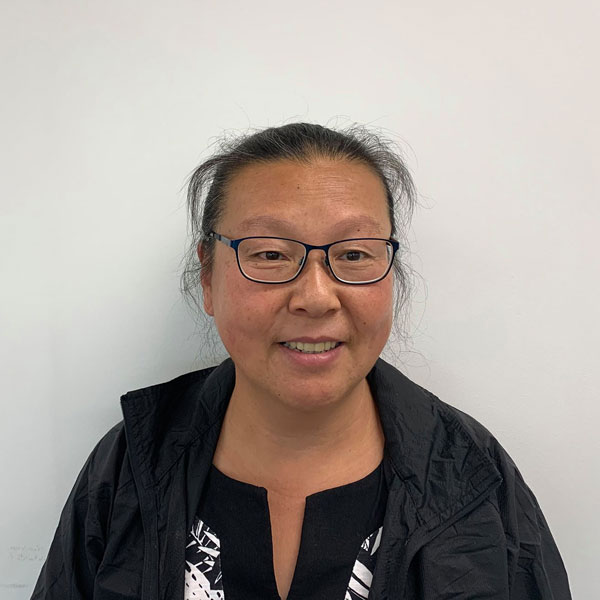
Abstract
English for Tertiary studies (ETS) is the direct entry English course for international students at UOW (University of Wollongong) College. In 2018 the ETS course underwent major restructure. The rigorous restructure journey commenced with multiple initial consultations and discussions including feedback from ETS teachers and coordinators, past and present ETS students and numerous other college and University stakeholders. This process enabled the practitioners involved to not only transform the ETS curricula but both its formative and summative assessment tasks as well. It led to the introduction of new curricula and assessment tasks as well as enabling better alignment of the different aspects of the course and the assessment tasks.
The process also led to increased relevance of assessment tasks with those at the university, increased student engagement as well as more productive and enhanced feedback. However, like any transformative journeys, the ETS course restructure also experienced its fair share of challenges. This presentation, with a focus on the transformations in the assessment tasks, will share the process, outcomes and the challenges faced from commencing the review process till implementation and beyond.
Bio
Ragni Prasad has been teaching at UOW College for the past 10 years. She has been teaching different courses for the ELICOS and Academic programs. She has been a coordinator for the ETS2 Academic Reading and Writing course and her passion, together with teaching, is improving the curricular and assessment tasks. She also has keen interest in collaborating with other staff and stakeholders of the College and university to instigate and advance transformations in various aspects of teaching and learning at the College.
Lu Qing Wang has been teaching at UOW College for thirty years. For most of that time, she has been the driving force behind the Direct Entry program, English for Tertiary Studies. As Course Coordinator she takes responsibility for course development, curriculum renewal and implementation as well as maintaining oversight of assessment standards and quality assurance within the program. She is respected by staff and students alike for her determination and fair-minded approach. Apart from that, she is passionate about student welfare and takes a keen interest in opportunities for transnational educational.
Transactional Transformation: 21st Century Neuroscience Complements Ancient Wisdom
Dr Michael Richards
ILSC Brisbane
Date/Time: Friday 08 May, 13:20pm
South Wharf
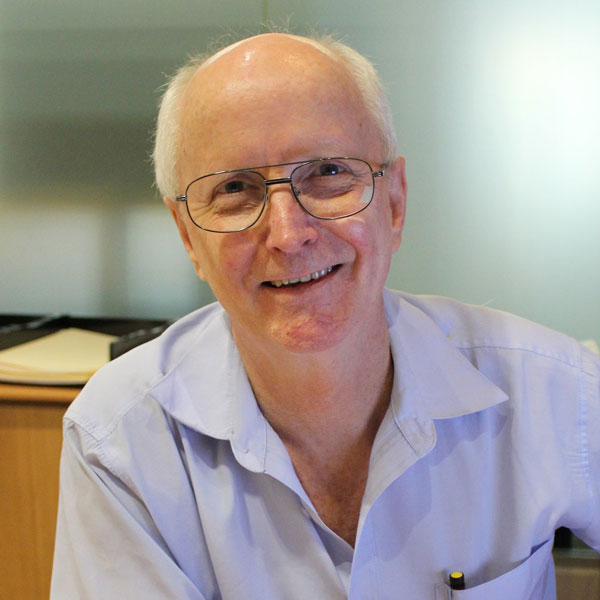
Abstract
Personal transformation is deeply embedded in ILSC’s educational philosophy and mission. Michael Richards discusses three engines that drive transformation for all stakeholders at ILSC in Brisbane: students, teachers and the entire school community.
The three engines of transformation are:
Life-long learning as a never-ending process of growth and development, elevating process over objective, journey over destination.
The school as a learning organisation where people generously share knowledge, skills and insights to build capacity and opportunities for everyone.
Learning as social and transactional. We learn through and from each other. Real learning is about the impact we have on people’s lives, our own and those of others
Michael provides practical examples of these principles in action, using case studies to illustrate transformation emerging from the everyday, and drawing on diverse references ranging from the timeless wisdom of ancient philosophies to contemporary insights gained from cutting-edge neuroscience and educational theories.
He advocates negotiation between organisational values and the personal values of individuals informed by an awareness that we are all interconnected, not only by our common interests in the workplace and the resulting entanglement of our vocational destinies, but much more broadly by our common humanity, and the physical and supra-natural worlds of which we are part. None of us stands alone, but we exist within and conditional upon our relationships with others. To that extent even our individual identities are both composite and conditional.
When one of us learns, everybody learns. When we share our learning, everybody is transformed.
Bio
Michael has been involved in education for thirty years. He forayed into print media, theatre, film-making, social research and community development before joining the ELICOS sector in 2005. He has been Director of Studies at ILSC in Brisbane since 2011 and has led the academic team through dynamic change, with growth in student numbers of over 700%. His focus is on building a generously collaborative academic culture that supports and empowers teachers, building their capacity to deliver transformative learning and living experiences to benefit all. He has presented at numerous events, including at NEAS conferences in 2015 and 2017, on topics including change management and servant leadership.
